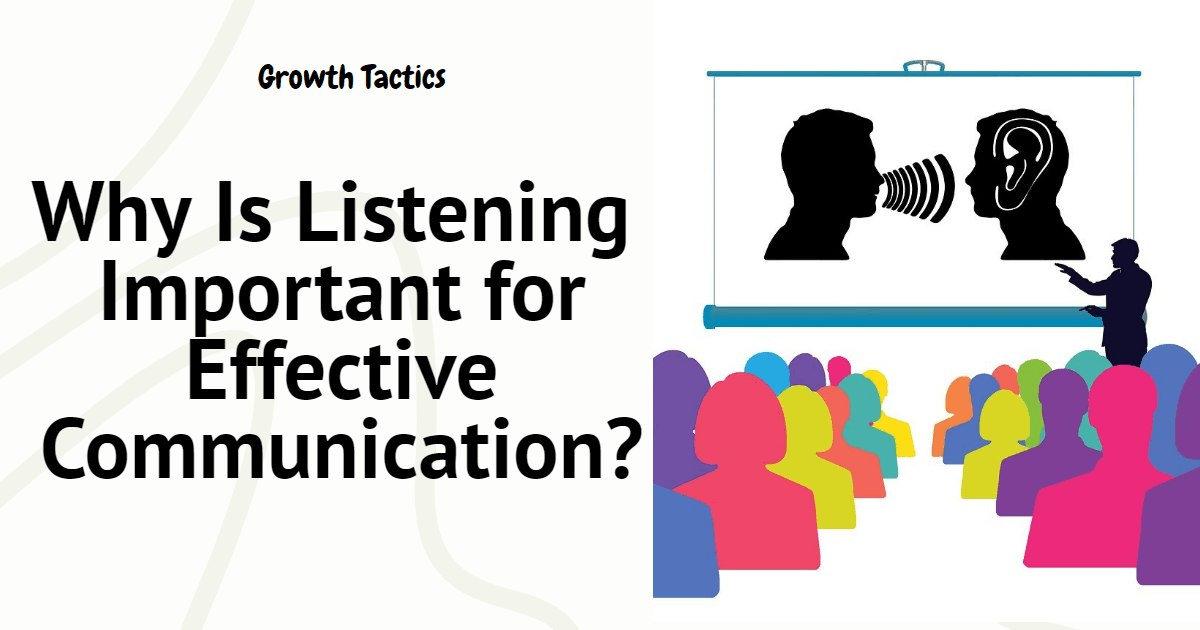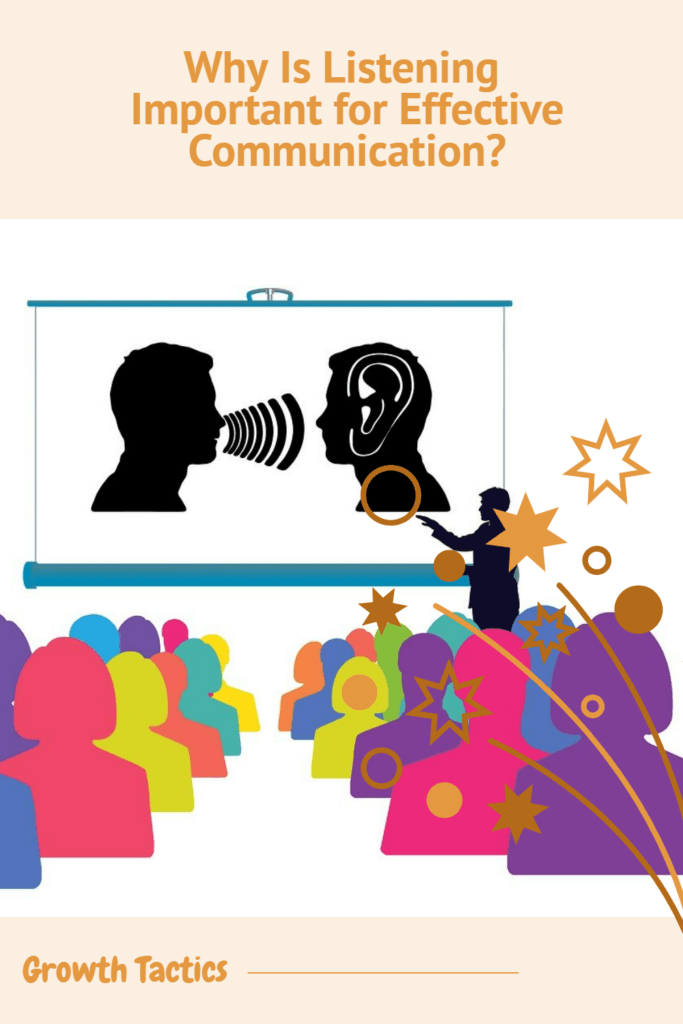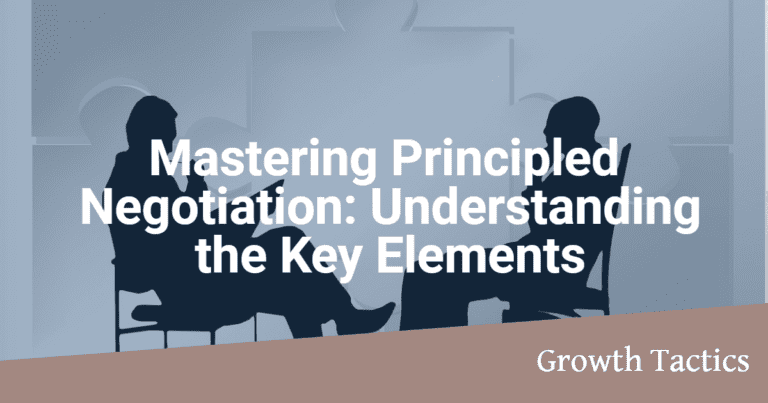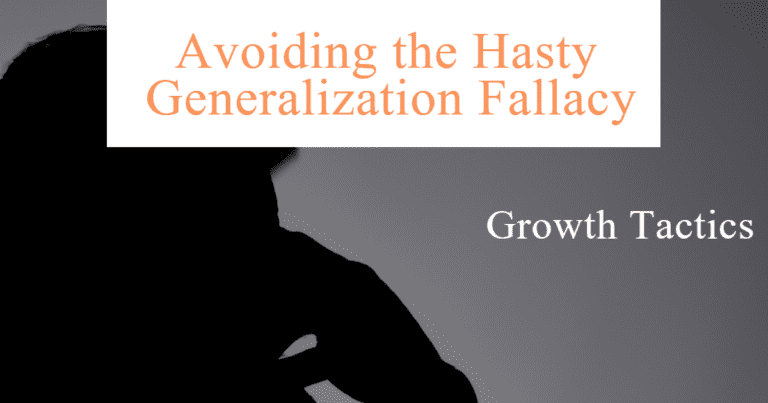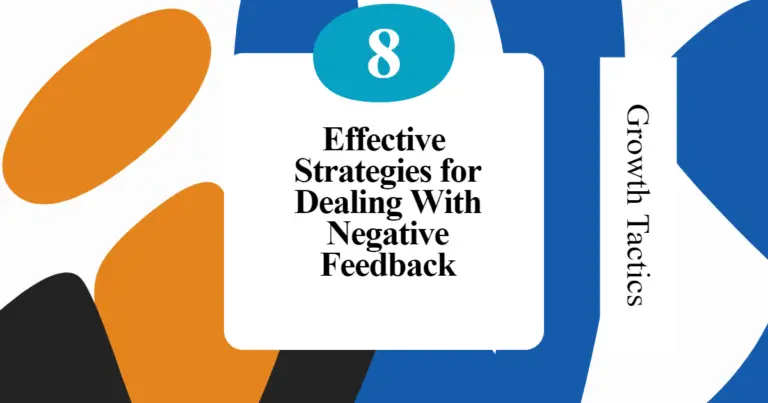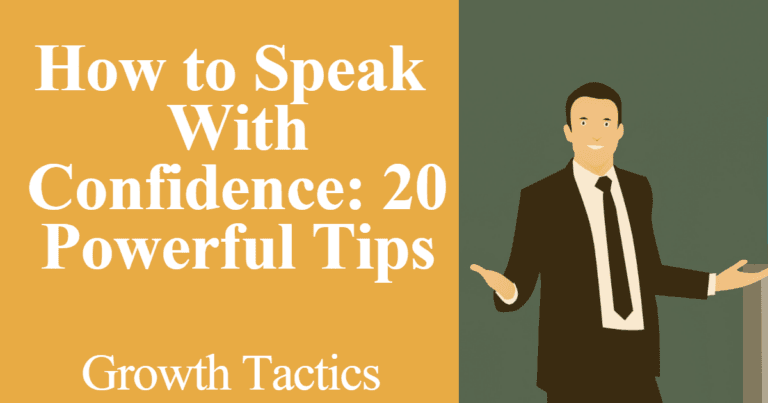When we talk about effective communication, we often think about how well we express ourselves. But there’s another side that’s just as important: listening.
We often overlook how listening and truly understanding what others say is key to great communication. Let’s explore why listening matters and how it can make you a better communicator.
Jump To Section
What Does Listening Really Mean?
Listening is more than just hearing words. It’s about taking in what the other person is saying, understanding their emotions, and responding thoughtfully. Real listening requires you to be present and focused.
Why Listening Matters
Builds Trust
Trust is the foundation of any relationship. When you listen carefully to someone, you show that you value their thoughts and feelings. This builds trust and makes the person more open to sharing and collaborating with you. Picture a scenario in a leadership position; your team needs to feel heard and understood to trust you fully.
Enhances Understanding
Listening helps you to understand the full picture. Think about a time when you misinterpreted someone because you weren’t really listening. How did that turn out? Often, it leads to confusion and mistakes. By listening well, you get a better grasp of what’s happening and avoid misunderstandings.
Reduces Misunderstandings
One of the main reasons for conflicts is poor communication. Misunderstandings can happen if you don’t fully listen. By honing your listening skills, you can prevent these misunderstandings and foster a more harmonious environment, whether at work or home.
The Power of Being a Good Listener
Being a good listener can change your world. It affects your relationships, your work, and your overall success. It’s about connecting with people and understanding their needs.
Building Better Relationships
When you truly listen, people feel valued. This builds stronger relationships. Think about it. When someone knows you’re listening, they trust you more. This respect makes your connections deeper and more meaningful.
Increased Work Success
Listening boosts your success at work. By understanding your team, you make better decisions. You can solve problems faster and more effectively. In the military, success relies on clear communication and strong teamwork. The same goes for any job.
More Overall Success
Good listeners are often more successful in life. They can handle conflicts better because they understand different sides. They also learn more from each interaction. Each conversation brings a new lesson, making you smarter and more adaptable.
Practical Tips for Effective Listening
Becoming a good listener doesn’t happen overnight. It takes practice and dedication. Here, we’ll share some practical tips to help you on your journey. Remember, effective listening is a vital skill that sets strong leaders apart.
Active Listening
Active listening means truly focusing on the speaker. Put away distractions like your phone. Make eye contact. Nod to show you’re engaged. This shows the speaker you are fully present.
Focus on the intent behind their words, not just the words themselves. This will help you connect on a deeper level.
Ask Questions
Asking questions not only clarifies what’s being said but also shows you’re interested. Simple questions like, “Can you elaborate on that?” or “What do you mean by this?” can make a big difference.
Lean into curiosity. When someone shares something with you, view it as an opportunity to learn.
Pay Attention to Body Language
Non-verbal cues are just as important as words. Notice the speaker’s body language. Are they excited, nervous, or upset? These signals can give you more context and help you respond appropriately.
Show Empathy
People first. Show empathy by acknowledging the speaker’s feelings and viewpoints. Phrases like, “I understand how you feel,” or “That sounds challenging,” can go a long way. This conveys that you value their experiences.
Give Feedback
Effective listening also means providing thoughtful feedback. Let the speaker know you’ve understood their message. Summarize what you’ve heard and ask if you’ve got it right. For example, “So you’re saying that…”
Be Patient
Sometimes, people need time to express their thoughts. Don’t rush them. Embrace moments of silence. It shows that you respect their presence and value what they have to say.
Manage Emotions
Strong leaders stay composed. If a conversation stirs up strong emotions, take a deep breath. Center yourself. Focus on the purpose of the discussion, not just your reaction.
Reflect on Your Listening
After important conversations, take a moment to reflect. What went well? What could you do better next time? Learning from each experience will make you a more effective listener in the future.
Practice Regularly
Like any skill, effective listening improves with practice. Make it a habit. Start in your daily interactions. Over time, it will become second nature.
Overcoming Barriers to Listening
Knowing why listening is vital is one thing, but putting it into practice can be tough. Here are some barriers you might face and how to overcome them. As any seasoned leader will tell you, recognizing and tackling these barriers head-on is essential in your journey towards effective listening.
Common Challenges
Distractions, preconceived notions, and emotional reactions can all hinder your ability to listen effectively. Picture this: you’re in a meeting, but your mind starts wandering to that email you need to send. Or maybe, you find yourself itching to interrupt with your own thoughts. These moments can derail even the most well-intentioned listener.
Distractions
In today’s world, distractions are everywhere. From the constant buzz of your phone to the noise of daily life, staying focused can be an uphill battle. It’s essential to create a space where you can truly listen. Turn off notifications. Find a quiet spot.
Preconceived Notions
We all have our own ideas and judgments. But when these notions cloud your mind, they act as barriers. It’s critical to approach each conversation with an open mind. Leave your assumptions at the door.
Emotional Reactions
Feelings are powerful and can often overshadow the voice of the speaker. If someone’s words trigger an emotional response in you, it’s natural. Recognize it, but don’t let it control the conversation.
Solutions
Every barrier has a solution. With the right mindset and tools, you can overcome these obstacles.
Practice Mindfulness
Mindfulness is about being fully present. It’s a tool used by great leaders to stay focused and intentional. Before any conversation, take a moment to center yourself. Maybe try a quick breathing exercise. This helps clear your mind and prepares you to listen.
Focus on Being Present
In the Air Force, they teach you the importance of presence. Not just physical, but mental presence too. Focus your attention on the speaker. Listen with the intent to understand, not to reply.
Take a Deep Breath
When you feel the urge to interrupt or your emotions rising, pause. Take a deep breath. This small action can make a huge difference. It gives you a moment to gather your thoughts and respond thoughtfully.
Let the Speaker Finish
It sounds simple but is often hard to practice. Make a conscious effort to let the speaker finish their point before you chime in. This shows respect and makes the conversation more meaningful.
Embrace Individuality
Remember, every person and conversation is unique. Tailor your listening approach to each situation. If you find something isn’t working, adjust. Leadership and growth come from being flexible and learning continuously.
Conclusion
Listening is not just a skill; it’s an art that can transform your relationships and make you a better communicator. By building trust, enhancing understanding, and reducing misunderstandings, effective listening can bring more harmony into your life. Remember, listening is a purposeful action. It requires your full attention and genuine interest.
So, take a moment to reflect on your listening habits. Are you truly hearing what others are saying? Can you improve? Commit to practicing these tips and watch how your communication improves. The journey to becoming a better listener and a more effective communicator starts with your next conversation.
Think about a recent conversation where you might not have been fully present. How could you have listened better? Share your thoughts and experiences in the comments below. Let’s learn and grow together.

